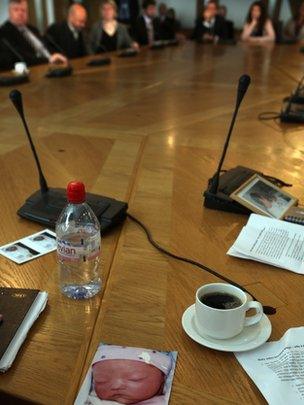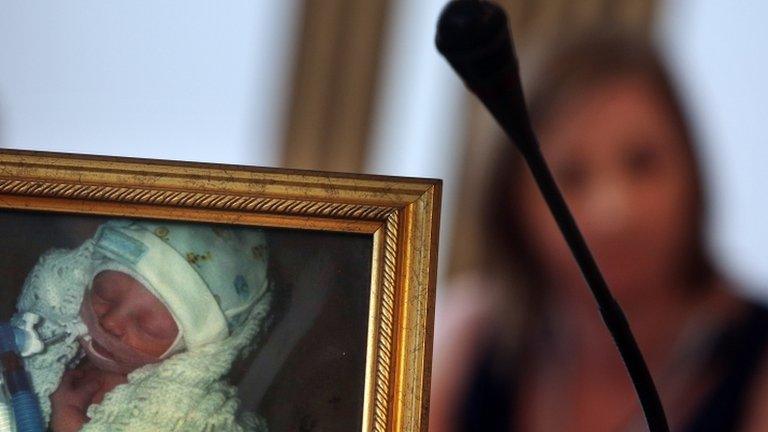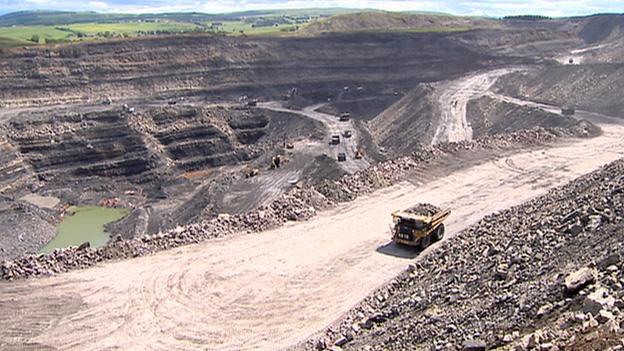On a personal note
- Published
All politics, they say, is local. They are, of course, wrong - but let us set that aside for a moment. For it is certainly the truth that politics is frequently personal, highly personal.
So it was for Alex Salmond at Holyrood as he faced questions once more on the tragic issue of the disposal of babies' ashes at various crematorium in Scotland.
Setting out to reassure the chamber about the extent of his sympathy over the issue, the First Minister told MSPs that his own mother had delivered a stillborn child.
If, added to such pain and bereavement, parents then learned that there was uncertainty as to the disposal of their infant's ashes, one could empathise with their hideously enhanced grief. Mr Salmond invited the chamber so to do.
The chamber was silent as the First Minister, his voice low and emotional, referred briefly to his own family's circumstances. He did not over-state it - indeed, his customary approach is to keep his own personal affairs strictly private.
But he was being depicted by Ruth Davidson, once again, as the sole obstacle to the public inquiry demanded by the parents.

A cross-party group heard from bereaved parents involved with the ashes scandal
It was understandable that, in such circumstances, his instinctive response was to explain to Ms Davidson that he empathised fully with the issue; perhaps more than she realised.
And he repeated his promise that he would indeed sanction a public inquiry, should the other existing avenues falter.
But he explained at considerable length why he hopes that the existing investigations are to be relied upon. One, by Eilish Angiolini, is into the original concerns surrounding Mortonhall crematorium in Edinburgh.
Mr Salmond said that approach could be replicated elsewhere, by other authorities.
The second inquiry is by Lord Bonomy who is tasked with advancing ideas which can be turned into legislation to prevent a recurrence of this tragedy. Mr Salmond noted that he hopes to legislate next year on the Bonomy plan, once it emerges. By contrast, he said, public inquiries take an average of three-and-a-half years; often longer.
On the day, it was possible, eminently possible, to sympathise with both arguments. The sympathetic pragmatism of the First Minister, no doubt underpinned by formal advice - and the empathetic appeal of Ruth Davidson, reflecting the anxiety and agony of bereaved parents.
The best deal
There were other substantive exchanges too. For Labour, Johann Lamont demanded to see the calculations upon which was founded the Scottish government's promise that pensions would be protected in an independent Scotland.
She made her point, repeatedly. Mr Salmond repeated his argument that the UK could already afford the triple lock guarantee to pensioners, that Scotland was relatively better off than the UK with regard to welfare and that, consequently, Scotland could afford to sustain the promise.
For the Liberal Democrats, Willie Rennie pursued the question of compensation for areas left environmentally scarred by recent mining developments. Mr Salmond promised that his ministers were pursuing the best deal for the environment and jobs.
- Published20 June 2013

- Published18 June 2013

- Published29 April 2013
